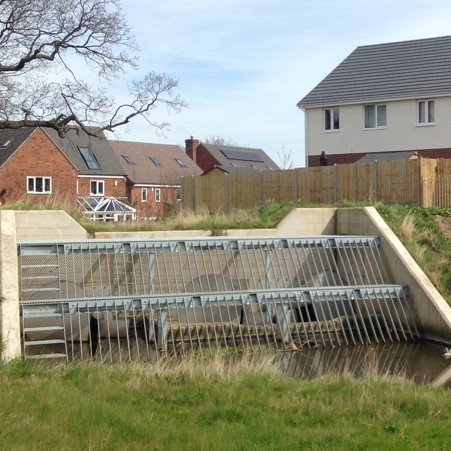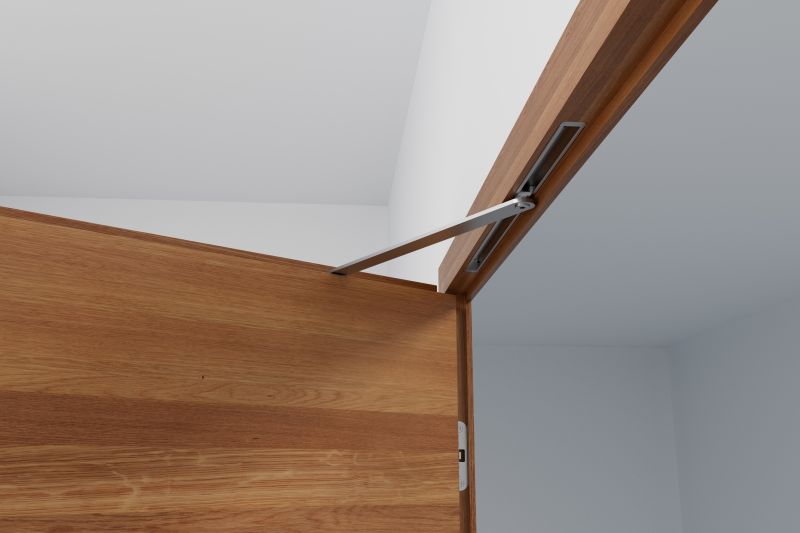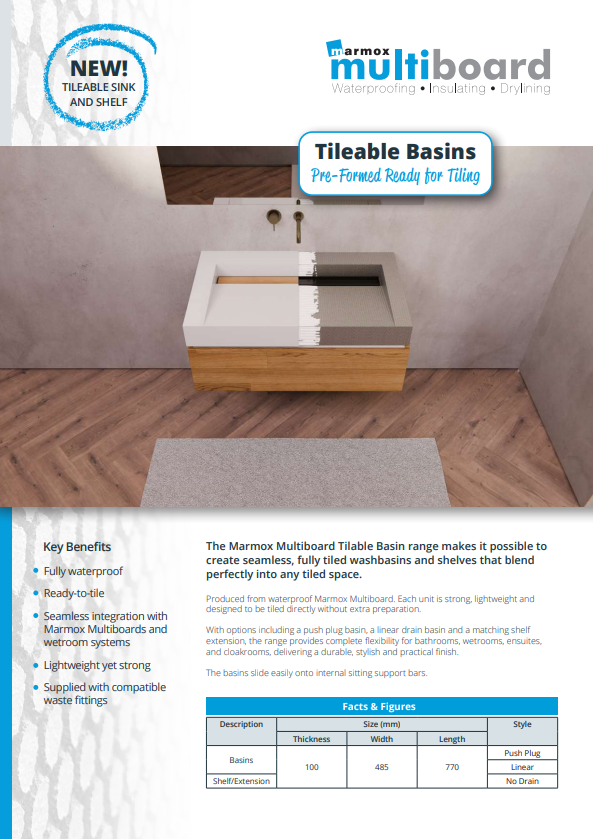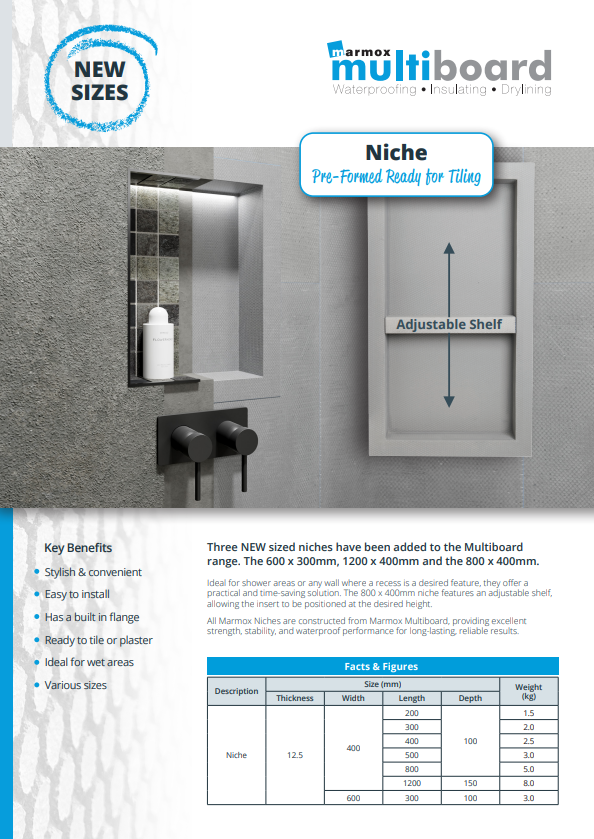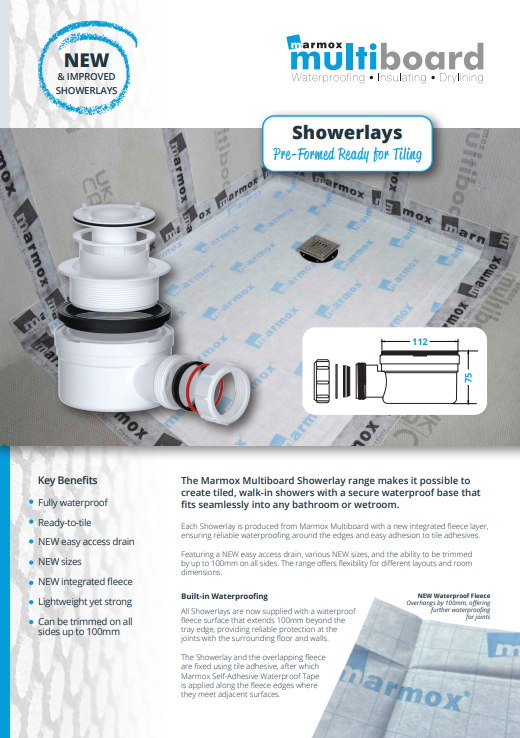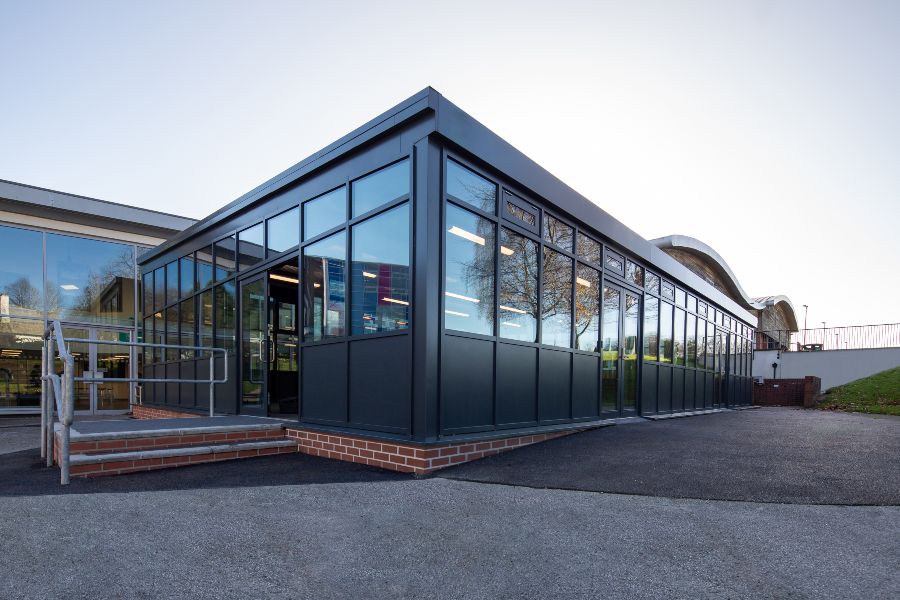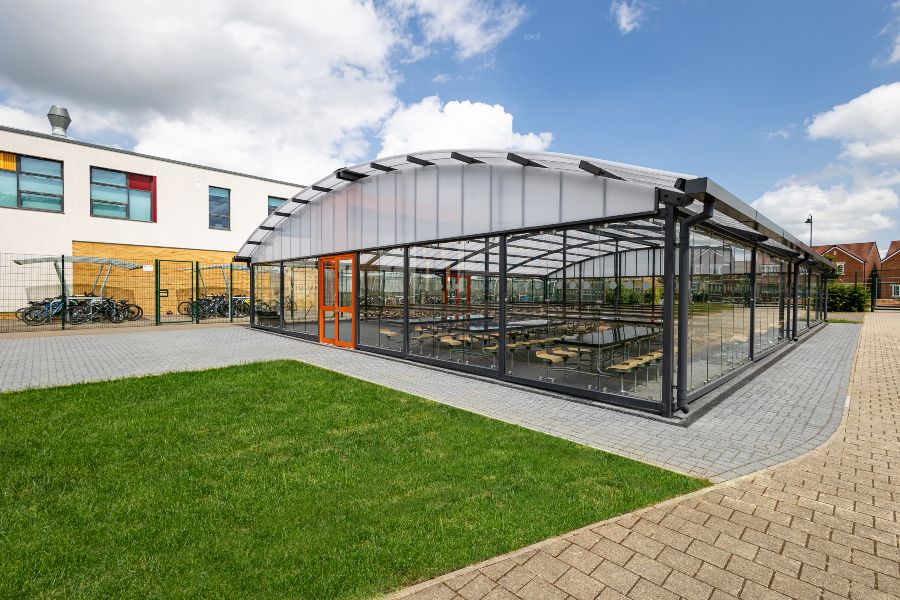An ingenious drainage scheme has provided much-needed relief to a flood-prone Telford community. Engineers used complex vortex flow control technology to solve a difficult problem, maximising the storage volumes available to keep within flood protection limits.
The existing drainage scheme in a part of Wellington, between the M54 and A5, was failing to prevent flooding through a nearby recent housing development. The site along Limekiln Lane takes catchment from The Wrekin and Ercall hills and excess surface water runoff from the M54, which forms the southern boundary of the site. Extensive flooding occurred as recently as 2012/2013 and as part of a planning application for the site, Telford and Wrekin planners put a condition on the approval to provide a scheme to resolve the flooding issues.
Consulting engineers Mouchel devised an innovative solution based on Sustainable Drainage Systems (SuDS) principles. This uses a configuration of three Hydro-Brake Optimum® flow controls to optimise the existing back up storage volume and provide enhanced protection for the built up areas downstream. The scheme provides 1 in 100 year protection, with a 30% excess to cover climate change. The design team is based in Shrewsbury and assisted by the hydrogeology team in Derby who assessed the existing runoff.
Neil Scott, Principal Engineer for Mouchel explains:
“Working closely with John Bellis, Local Flood Risk Officer, Telford and Wrekin Council, and Paul Garvey of Garvey Developments Ltd (the developer and contractor) we were challenged to deliver a robust flood protection scheme using the maximum storage available within a specific area allocated on the site, which is sandwiched between a housing development and new school playing fields. For safety and amenity reasons, it was not possible to change the shape or depth of the storage basin, which has landscaped, shallow grassed banks designed to maintain the appearance of the area with a top level restricted by the levels of the surrounding developments. The level of the outgoing invert level is limited by the downstream stream level.”
The existing arrangement was that normal dry weather flow followed the historic stream course with an arrangement which allowed overflow into a dry swale. The overflow was then discharged into a bypass system of 1200 mm diameter pipes. The existing stream course was cut into the sides of a shallow valley, and is believed to have been diverted in mediaeval times to feed the fish ponds of one of the oldest houses in the area. The remnants of the pond still exists although the house has gone. The perched nature of the stream had resulted in major problems when the banks were breached, with long-term flooding in the low point of the field.
However, this design had not functioned properly, and resulted in regular inundation of fields, landscaped areas and houses. The new drainage design also had to ensure that normal stream flows could continue downstream with no restriction in light flow conditions for ecology and amenity purposes.
Neil continues: “As you get more flow at a lower head through the Hydro-Brake Optimum®, less back up storage is required. So, the discharge from the basin could be carefully controlled to make the most of the storage capacity available. The maximum stored volume of 6,700 m3 was the total amount which could be accommodated within the area and the maximum combined continuation flow was 1.75 m3 per second. The maximum depth of water which could be achieved on the site is 2.2 m.
“With all these parameters in mind, we decided to split the flow so that normal flow and flood flows activated separate flow controls installed in a concrete headwall structure to provide additional protection when required.
“With the help of Hydro’s technical design support, we devised a headwall arrangement with one flow control unit providing the continuation flow discharging at a maximum of 584 l/s through a 900 mm pipe, and units two and three on the other side of the shallow weir wall activated during peak events.”
The normal surface water intake is channelled through the continuation unit into the existing watercourse. When the flow overtops the shallow weir wall, Hydro-Brake Optimum® units two and three come into operation before combining and discharging into the 1200 mm pipe into a previously redundant overflow culvert, brought into more effective use as part of the scheme.
With all units set at the same level the flow is always split 33/66 as soon as the water level overtops the weir level.
“When the consulting engineers outlined the restriction on storage volume and the flow parameters to our design team, they recognised that only a Hydro-Brake Optimum® could meet the tight constraints,” said Phil Collins, National Sales & Marketing Manager for Hydro’s UK Stormwater division.
“Because the internal geometry of a Hydro-Brake Optimum® can be sized flexibly to deliver precise flood storage requirements, they could be used to calculate exactly the storage levels needed.
“Complex flow control chambers such as the one designed for Limekiln Lane are being used increasingly to meet regulatory requirements for staged discharge rates for different return periods.
“This example shows how they can be used to provide effective, multi-stage flood protection where surface water flow levels vary extensively in flooding conditions. In this case, the three Hydro-Brake Optimum® units were installed at the same level, separated by a weir wall.
For more information about the Hydro-Brake Optimum® and other stormwater and wastewater management products please call 01275 337937 01275 337937, email enquiries@hydro-int.com or visit www.hydro-int.com.
01275 337937, email enquiries@hydro-int.com or visit www.hydro-int.com.






